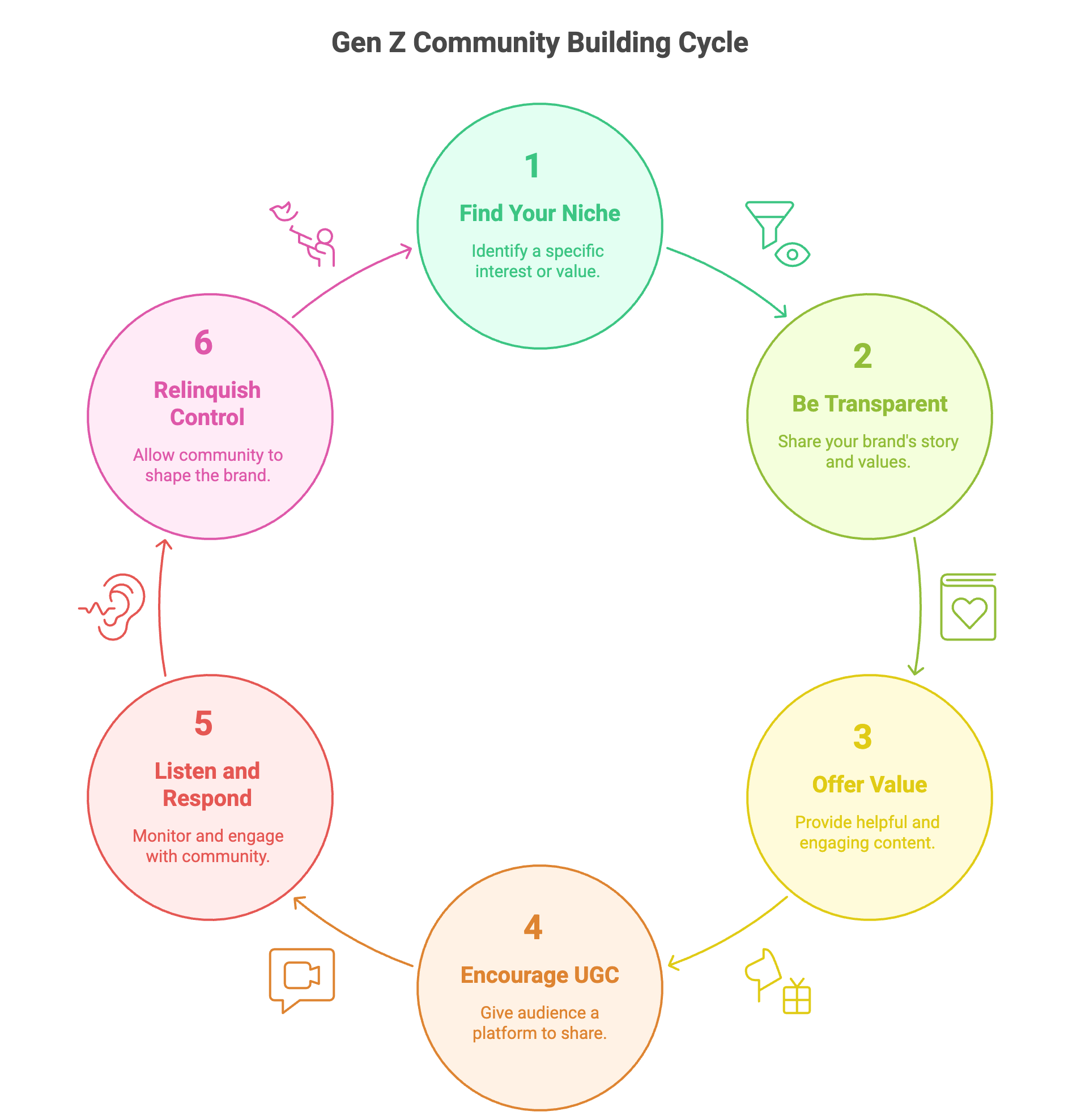Forget everything you thought you knew about brand loyalty. Gen Z, the generation born roughly between 1997 and 2012, are rewriting the rules. They’re not just buying products; they’re buying into movements, values, and, crucially, communities. Understanding this shift is crucial for any business hoping to connect with this powerful demographic.
Understanding Gen Z: A New Era of Consumerism
Gen Z has grown up in a hyper-connected world, bombarded with marketing messages from every angle. This digital saturation has made them discerning and, frankly, a bit cynical. They don’t blindly accept advertising claims. Authenticity is their watchword. They value transparency and expect brands to stand for something beyond just profits. A 2023 Deloitte study revealed that almost half of Gen Z consumers have stopped purchasing from a company because its values didn’t align with their own. This isn’t your parents’ consumerism!
The Power of Community: Gen Z’s Social Connection
More than any generation before, Gen Z craves connection. They’ve built their lives online, forging relationships and finding support in digital spaces. For them, community is more than just a group; it’s a source of belonging, validation, and shared experience. This deeply ingrained need for community informs their buying habits. They’re drawn to brands that foster connection, spark conversations, and create a sense of belonging.
Brand Values vs. Brand Promises
Gen Z sees right through empty promises. They demand that brands walk the walk, not just talk the talk. Saying you’re “sustainable” isn’t enough; they want to see concrete actions and measurable impact. Similarly, brands championing “diversity and inclusion” must reflect those values internally, from hiring practices to leadership teams. Glossy advertising campaigns won’t cut it anymore. Gen Z is all about genuine values and demonstrable impact.
From Transactions to Relationships: Building Brand Community with Gen Z
Building a Gen Z-focused community moves beyond simple transactions. It’s about fostering relationships, providing value, and creating opportunities for interaction. It’s about creating a space where customers feel heard, understood, and appreciated. Think of it as nurturing a friendship, not just closing a sale.
How Brands Can Cultivate Authentic Gen Z Communities
So, how do you build a genuine Gen Z community? Here are some pointers:
- Find your niche: Don’t try to be everything to everyone. Identify a specific interest or value that resonates with a particular segment of Gen Z.
- Be transparent and authentic: Share your brand’s story, including the challenges you face. Be open about your values and how you’re putting them into practice.
- Offer genuine value: Provide content, resources, or experiences that are genuinely helpful and engaging. Think tutorials, behind-the-scenes content, or opportunities for collaboration.
- Encourage user-generated content: Give your audience a platform to share their own experiences and stories. This creates a sense of ownership and strengthens community bonds.
- Listen and respond: Actively monitor your community channels and respond to comments and questions promptly. Show that you’re paying attention and that you value their input.
- Don’t be afraid to relinquish some control: A community thrives on autonomy. Allow members to shape the conversation and contribute to the brand in meaningful ways. This involves trusting the community to self-regulate, though clear community guidelines are essential.

Social Media’s Role: Different platforms offer unique community-building opportunities. TikTok is ideal for short-form video content and trends, Instagram for visual storytelling and influencer collaborations, and Discord for creating dedicated servers with niche interests. Selecting the right platform depends on your brand and the type of community you aim to build.
The Pitfalls: Community building isn’t without its challenges. Brands must be prepared to address negative feedback, manage conflicts, and ensure the community remains welcoming and inclusive. Authenticity and transparency are key in navigating these situations.
Measuring Success: ROI can be measured in various ways, including increased brand awareness, higher engagement rates, improved customer retention, and ultimately, boosted sales. Track metrics like website traffic from community links, social media mentions, and customer lifetime value.
Case Studies: Brands Successfully Engaging with Gen Z Through Community
- Gymshark: The fitness apparel brand has built a massive Gen Z community through its influencer partnerships, online challenges, and pop-up events. They’ve created a sense of belonging by celebrating progress, not perfection, and fostering a supportive environment. Their app further fuels this, providing workout plans and connections among users.
- Duolingo: The language learning app has amassed a vibrant community on platforms like TikTok by embracing humour and self-deprecation. They use relatable memes and engaging video content to connect with Gen Z on their level. This lighthearted approach has boosted their brand image and created a loyal following.
- Sephora: The beauty retailer has cultivated a strong community through its Beauty Insider program, offering exclusive rewards, personalised recommendations, and access to online forums where customers can share tips and advice. This fosters a sense of exclusivity and belonging, driving repeat purchases and brand advocacy.
The Future of Brand Loyalty: Gen Z and the Community-Driven Marketplace
The future of brand loyalty isn’t about points programs or discounts; it’s about connection, shared values, and belonging. Gen Z is leading the charge towards a community-driven marketplace, where brands are judged not just by the quality of their products but by the strength of their communities. Businesses that prioritise building authentic relationships and fostering a sense of belonging will be the ones that thrive in this new era. Those who cling to outdated marketing tactics will likely find themselves struggling to connect with this powerful and influential generation.


















